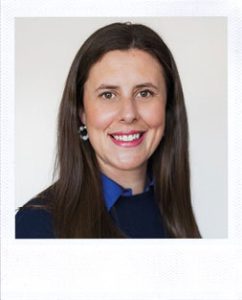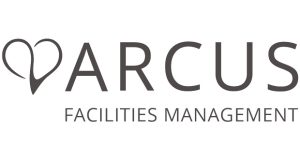On average, 20,000 veterans leave the Armed Forces each year to join the civilian workforce, yet half have a difficult time finding work. With research revealing that over two thirds of veterans who joined the industry felt FM was a good fit for their skills, and 84 per cent of managers agreeing that veterans have the skills that the industry need, what more could the sector be doing to attract and mobilise veterans?
 THE EX-SERVICES PERSONNEL’S VIEW
THE EX-SERVICES PERSONNEL’S VIEW
MOLLIE GREEN,
HEAD OF MITIE FOUNDATION, MITIE
Having joined Mitie directly from the British Army, I know first-hand that moving to civilian life can feel like quite a transition. The support I’ve had since joining the FM industry has been invaluable to me in finding my feet and developing my career. I’ve been lucky enough to connect with a lot of my fellow veteran colleagues, and I know many of us have found that the skills we gained in the Forces are very relevant to our roles today.
Given these strong transferable skills, reliability, working under pressure, and adaptability to name a few, there are a lot of different sectors trying to attract veterans looking for their first roles in the civilian workforce. To show the Forces community that the FM industry is a good option for them, businesses need to be getting out to careers fairs, creating dedicated careers portals, like the Mitie Foundation’s Career page, and working with charities that connect veterans to employers. I’m sure most people can relate that when starting a career or changing career path you may not realise which roles best suit your skills, so awareness is key.
This isn’t the only issue though. When changing career and faced with a range of job descriptions, it’s easy to start questioning if you have the right skills for a corporate role. With research carried out by Mitie in 2021 finding that many veterans are concerned that a lack of technical skills might prevent them from working in FM, we have work to do in helping ex-services personnel to realise their potential in the industry.
Offering work placements is a great way to do this. Our Ready2Work – Military scheme involves support with employment skills, including CV writing and interview preparation, followed by a two-to-four-week placement in the business area of candidate’s choice. Each candidate is also paired with a Mitie mentor to give them personalised support, build their personal and professional network, develop their confidence, and help them better understand their strengths. I’m immensely proud that seven in 10 of the programme’s graduates have gone on to be permanently employed at Mitie or one of our customers.
 From my experience, it’s crucial that guidance doesn’t stop there. I started in the FM industry in a customer-facing role at a COVID test centre and now head up the Mitie Foundation – our independent charity helping people with barriers to employment find opportunities in FM. My confidence to explore new roles is in part, thanks to the support I’ve had from people who’ve been in my shoes.
From my experience, it’s crucial that guidance doesn’t stop there. I started in the FM industry in a customer-facing role at a COVID test centre and now head up the Mitie Foundation – our independent charity helping people with barriers to employment find opportunities in FM. My confidence to explore new roles is in part, thanks to the support I’ve had from people who’ve been in my shoes.
By creating communities of like-minded colleagues, we can make sure that all veterans in the industry have access to this support. In fact, our research showed that a fifth of veterans felt creating employee networks would aid a smooth transition into civilian life. Our armed forces network, Mitie Military, encourages colleagues who are veterans and their families, to share experiences, building a sense of community. The group also provides a forum to drive positive change within the business so everyone can thrive in their careers.
As a proud signatory of the Armed Forces Covenant and recipients of the Gold Award on the government’s Defence Employer Recognition Scheme, at Mitie, we’ve shown dedication to supporting the Forces community, and encourage the rest of the industry to do the same. I’ve successfully adapted and am enjoying a fulfilling career in FM and know that with targeted initiatives in place, our industry can benefit even more from the skills and expertise the ex-armed forces community has to offer.




